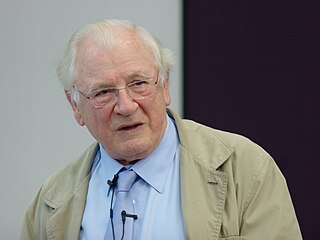Logic programming is a programming paradigm which is largely based on formal logic. Any program written in a logic programming language is a set of sentences in logical form, expressing facts and rules about some problem domain. Major logic programming language families include Prolog, answer set programming (ASP) and Datalog. In all of these languages, rules are written in the form of clauses:
Mercury is a functional logic programming language made for real-world uses. The first version was developed at the University of Melbourne, Computer Science department, by Fergus Henderson, Thomas Conway, and Zoltan Somogyi, under Somogyi's supervision, and released on April 8, 1995.
Prolog is a logic programming language associated with artificial intelligence and computational linguistics.
Planner is a programming language designed by Carl Hewitt at MIT, and first published in 1969. First, subsets such as Micro-Planner and Pico-Planner were implemented, and then essentially the whole language was implemented as Popler by Julian Davies at the University of Edinburgh in the POP-2 programming language. Derivations such as QA4, Conniver, QLISP and Ether were important tools in artificial intelligence research in the 1970s, which influenced commercial developments such as Knowledge Engineering Environment (KEE) and Automated Reasoning Tool (ART).
The Fifth Generation Computer Systems (FGCS) was a 10-year initiative begun in 1982 by Japan's Ministry of International Trade and Industry (MITI) to create computers using massively parallel computing and logic programming. It aimed to create an "epoch-making computer" with supercomputer-like performance and to provide a platform for future developments in artificial intelligence. FGCS was ahead of its time and a commercial failure. FGCS contributed greatly to the field of concurrent logic programming.

Ehud Shapiro is a multi-disciplinary scientist, artist, entrepreneur and Professor of Computer Science and Biology at the Weizmann Institute of Science. With international reputation, he made fundamental contributions to many scientific disciplines. Shapiro was also an Internet pioneer, a successful Internet entrepreneur, and a pioneer and proponent of E-democracy. Shapiro is the founder of the Ba Rock Band and conceived its original artistic program. He is a winner of two ERC Advanced Grants.
In computer science, the occurs check is a part of algorithms for syntactic unification. It causes unification of a variable V and a structure S to fail if S contains V.
David H. D. Warren is a computer scientist who worked primarily on logic programming and in particular the programming language Prolog in the 1970s and 1980s. Warren wrote the first compiler for Prolog, and the Warren Abstract Machine execution environment for Prolog is named after him.
Negation as failure is a non-monotonic inference rule in logic programming, used to derive from failure to derive . Note that can be different from the statement of the logical negation of , depending on the completeness of the inference algorithm and thus also on the formal logic system.
Indeterminacy in concurrent computation is concerned with the effects of indeterminacy in concurrent computation. Computation is an area in which indeterminacy is becoming increasingly important because of the massive increase in concurrency due to networking and the advent of many-core computer architectures. These computer systems make use of arbiters which give rise to indeterminacy.
Higher-order programming is a style of computer programming that uses software components, like functions, modules or objects, as values. It is usually instantiated with, or borrowed from, models of computation such as lambda calculus which make heavy use of higher-order functions. A programming language can be considered higher-order if components, such as procedures or labels, can be used just like data. For example, these elements could be used in the same way as arguments or values.

Cornelis Hermanus Antonius "Kees" Koster was a Dutch computer scientist who was a professor in the Department of Informatics at the Radboud University Nijmegen in the Netherlands.
A definite clause grammar (DCG) is a way of expressing grammar, either for natural or formal languages, in a logic programming language such as Prolog. It is closely related to the concept of attribute grammars / affix grammars from which Prolog was originally developed. DCGs are usually associated with Prolog, but similar languages such as Mercury also include DCGs. They are called definite clause grammars because they represent a grammar as a set of definite clauses in first-order logic.
Programming languages are used for controlling the behavior of a machine. Like natural languages, programming languages follow the rules for syntax and semantics.
CHIP is a constraint logic programming language developed by M. Dincbas, Pascal Van Hentenryck and colleagues in 1985 at the European Computer-Industry Research Centre (ECRC), initially using a Prolog language interface. It was the first programming language to implement Constraint Programming over Finite Domains, and subsequently to introduce the concept of Global Constraints.

John Alan Robinson was a philosopher, mathematician, and computer scientist. He was a professor emeritus at Syracuse University.
The following Comparison of Prolog implementations provides a reference for the relative feature sets and performance of different implementations of the Prolog computer programming language.
Ken O'Keefe is an American football coach and former player. He most recently served as the quarterbacks coach for the Iowa Hawkeyes football team, a position he held from January 2017 through February 2022. O'Keefe served as the offensive coordinator for the Iowa Hawkeyes football team from 1999 to 2011. He was the head football coach at the Allegheny College from 1990 to 1997 and at Fordham University in 1998, compiling a career college football record of 83–17–1. In O'Keefe's first season at Allegheny, in 1990, his team went 13–0–1 and won the NCAA Division III Football Championship.
In computer programming, symbolic programming is a programming paradigm in which the program can manipulate its own formulas and program components as if they were plain data.
Alan Mycroft is a professor at the Computer Laboratory, University of Cambridge and a Fellow of Robinson College, Cambridge, where he is also director of studies for computer science.


